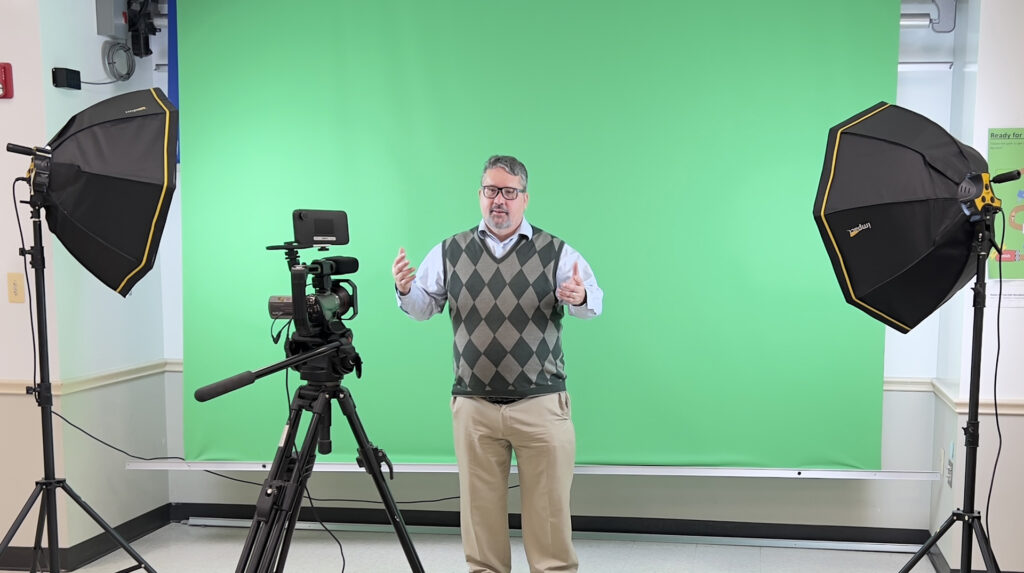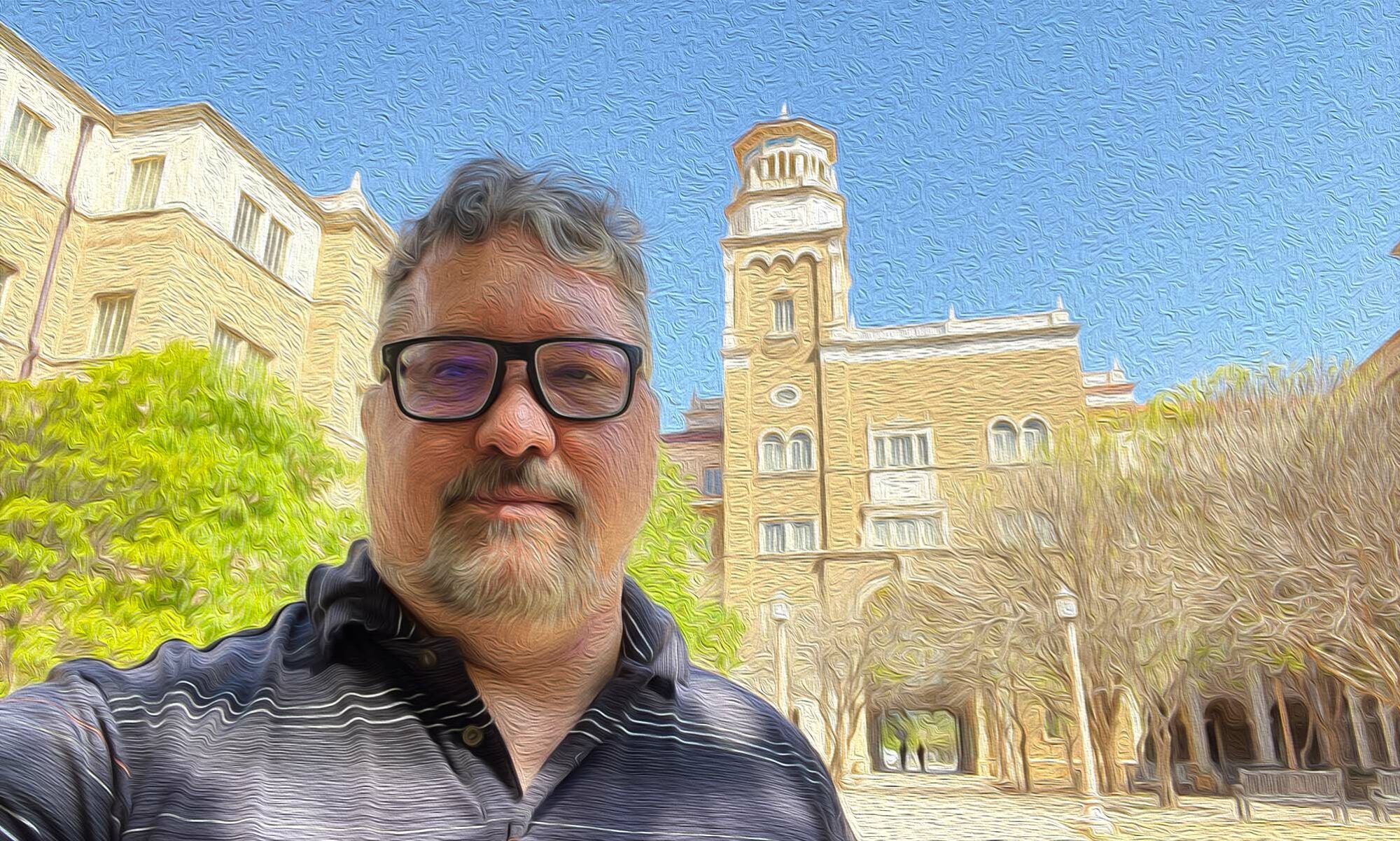In 2024, almost every kind of creative work done by students and faculty in English Departments is born digital. Writing, editing, design, multimodal and interactive content, podcasts, video for teaching, collaboration, or presentation of research — all of these require digital tools which are consistently evolving.
But ask yourself — when did you last actually learn a new digital tool, thoroughly? One you’d never used before? We often figure out how to ‘muddle through’ a new site, app, or application, but most of us don’t ever spend focused time learning to understand new tools. As a result, many people in English aren’t expert with software or hardware.
Which can be an issue, when so much creative work is born digital.
The Media Lab is a space for students and scholars to learn to use to create/edit digital, collaborative, or media-enhanced projects. It has higher-end computers and amazing software installed, which makes it much simpler to learn new tech. The English Media Lab aims to foster pedagogy and cultivate research infused with creative media technology, and to support the development of digital and new media literacies.

Students, faculty, and staff are welcome to visit the lab to use our equipment and software. You can even borrow items from our equipment library, including mics, cameras, and more. We also have staff members who have skills that can help you complete your project.
So. The TTU English Media Lab pursues this mission by facilitating several forms of theoretically-informed practice:
- interdisciplinary scholarly research into new media, publishing collaborative writings about new findings and methodologies.
- students’ extracurricular interactions with advanced new media technologies.
- instructors’ exploration of new media for producing more engaging course materials.
- development of leading-edge new media products, including websites, desktop and web apps, interactive multimedia, user interfaces, instructional designs, streaming, and optical media solutions.
- funded research into new media development methods and techniques.
- study of the effective teaching of new media.
- investigation of often-neglected arts and humanities aspects of new media, such as the cultural studies of technology, history of science and technology, and user-centered design.
